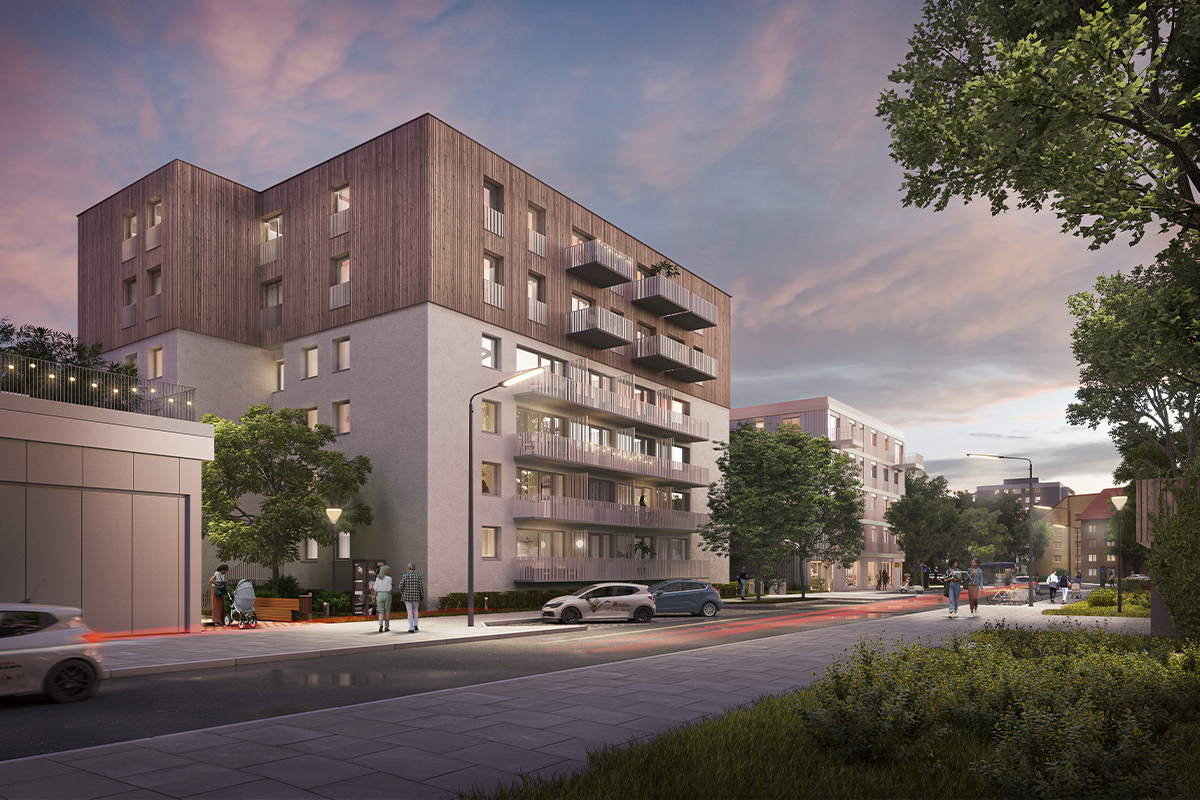The demand for affordable housing in urban centers is constantly growing. Innovative construction methods and sustainable materials play a crucial role in meeting these increasing demands. The “SAGA Horner Geest” project in Hamburg-Horn is an exemplary case of a forward-looking solution, combining timber module construction, space efficiency, and sustainable urban development. This article presents the background, technical aspects, and benefits of this project. The aim is to demonstrate how timber module construction can actively contribute to solving the housing problem and what significance sustainable construction methods hold for the future of the city of Hamburg.
1. Sustainability and Timber Module Construction: Fundamentals and Significance
Wood is considered a renewable raw material with a comparatively low CO₂ footprint. Compared to conventional building materials such as concrete or steel, wood offers an environmentally friendly alternative that provides advantages in both production and disposal. Timber module construction utilizes prefabricated building elements that only need to be assembled on site. This construction method enables significantly reduced construction times, high precision, and flexible building design.
The “SAGA Horner Geest” project in Hamburg-Horn precisely adopts these sustainable principles. By using timber modules, not only is the construction time reduced, but the ecological footprint of the construction project is also improved. The modular construction method also allows for easy adaptation to future changes in use or extensions.
2. Innovative Space Utilization through Vertical Extensions and Additions
The core objective of the project is the efficient utilization of existing spaces. Existing buildings are being vertically extended and expanded with additions to create additional living space without occupying new land. This approach significantly contributes to the densification of the district while preserving urban integrity.
The advantages are clear: the utilization of existing infrastructure, shorter construction times, and lower building costs. Furthermore, timber module construction enables rapid implementation, which is particularly beneficial in cases of urgent housing demand. Challenges primarily lie in structural planning and integration into the existing building fabric, which are, however, overcome through precise planning and modern manufacturing techniques.
Visualizations, such as blueprints or 3D models, illustrate the planned vertical extensions and additions. They demonstrate how urban space can be efficiently densified through innovative construction methods.
3. Sustainability, Social Responsibility, and Future Perspectives
The “SAGA Horner Geest” project is a prime example of sustainable timber construction in urban development. With a net cold rent of only €7.10 per square meter, it offers an affordable solution for low-income individuals. The collaboration with the SAGA Group, Hamburg’s Senator for Urban Development, and other partners underscores the importance of a collaborative approach to sustainable urban development.
In the long term, the project contributes to reducing the city’s ecological footprint, alleviating pressure on the housing market, and improving the quality of life in Hamburg-Horn.



